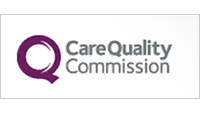About Acne
Acne is an inflammatory skin disorder. It is very common in both sexes, particularly during puberty while the body is undergoing drastic hormonal changes. During recent years however, more and more men and women have continued to battle acne well past their 20s and sometimes even up until their 40s.
Acne can be very distressing to the sufferer, particularly if it is severe and long-standing. Inflammatory acne can leave deep scars, however it is nowadays possible to greatly improve the appearance of acne-scarred skin. Nonetheless, it is important to treat acne using suitable treatments for the best potential outcome and to minimise the chance of scarring.
There are many misconceptions surrounding acne which can lead to people aggravating the condition by following useless and sometimes even harmful tips.
- Acne is due to poor hygiene: Acne is not caused by insufficient hygiene. Harsh or too frequent cleansing further weakens the skins natural barrier and can as such stimulate oil production which in return favours bacterial overgrowth. Saying that, you should avoid touching your face especially if you did not wash your hands beforehand.
- Acne is caused by a poor diet: it has been scientifically proven that no link exists between eating certain foods such as chocolate, junk food or nuts and developing acne. A healthy diet does however have a positive impact on your general wellbeing and overall health, which can add as a mood lifter since people with severe acne tend to suffer a great deal of stress due to the condition.
- Acne is cured by sunlight: Many acne patients find that their skin improves during a holiday in a sunny country. While this may initially turn out to be true as the sun dries out the skin, it also thickens it which in the long run will make it harder for sebum to escape thus clog up pores more easily.
The sore looking symptoms such as spots and pimples are caused by an excess of sebum (oil) on the skin. Hormonal changes or imbalances often manifest themselves in symptoms such as oily hair and skin. If the cutaneous sebaceous glands (which sit under the skin and secrete the oil) produce more oil than is needed to lubricate the skin, it cannot escape and will block the pore, which is also made up of a hair follicle. The result is a closed comedone, commonly called blackhead. Due to their dark colour, many people wrongly assume that it is dirt. Effectively, blackheads are filled with dead skin cells containing a dark pigment called melanin.
If the pore, in addition to being blocked, gets further irritated by bacterial waste, the pore becomes inflamed. This results in pus-filled whiteheads, cysts or painful lumps and nodules which sometimes sit deep under the skin.
Acne can be brought on by many factors including puberty, stress, pregnancy, genetic predisposition or an excess of male sex hormones in women (androgens).
More detailed information can be found on the NHS website.
Order Acne treatments
Pharma.MyonlineDoctor can provide you with an online prescription for acne medications following an online consultation with our GMC and EU-registered doctors. The treatment is then sent out directly to your address by our partner pharmacies.
Appropriate treatment will mainly depend on the severity of the acne. Mild and temporary acne can usually be managed with over-the-counter products readily available at most pharmacies and drugstores. These include cleansers, toners, creams and gels containing salicylic acid in a concentration of up to 2% and benzoyl peroxide in strengths of up to 5%. Both of these substances peel the skin to keep pores clear and therefore let sebum escape before it can clog up pores. Furthermore, they kill the spot-causing bacteria thus allowing the skin to heal. People with sensitive skin might find that their skin stings and reddens during initial treatment. This usually subsides after a few weeks.
Always read the patient leaflet first and talk to your doctor or pharmacist if you feel that the treatment is not leading to the desired results. It is also important to note that you will need to be persistent and not only use the treatment very regularly, but also for at least 6-8 weeks before you can expect to see results.
Adult acne in women is often caused by an excess of male sex hormones. This can be balanced out by hormonal treatment, for example with Dianette. Many women find that their skin clears up when using certain contraceptives such as the combined oral contraceptive pill Yasmin.
People suffering from moderate or more severe acne may need stronger treatment than the products available over the counter. There are a number of powerful prescription treatments available and your doctor will be able to determine which one is most suitable for your type of acne.
- Topical and oral antibiotics such as Clindamycine and Doxycycline kill bacteria and are a good choice for people suffering from inflamed spots and whiteheads.
- Patients with blackheads are best treated with a medicine containing an active ingredient that peels the top layers of the skin, such as Differin (adalpene) or Skinoren (azelaic acid).
- In particularly severe cases and persistent acne, Roaccutane is taken orally. This medicine contains a powerful vitamin A derivative. It can have severe side effects and must not be used by women who are pregnant or trying to become pregnant.
Any acne treatment is likely to make your skin dry. It is therefore important that you moisturise well, however be sure to only use products labelled as non-comedogenic as these have been proven not to contain any ingredients that could clog up our pores further. Some medicines such as Differin or Doxycycline increase your skins sun sensitivity so use a non-comedogenic sunscreen while following this treatment.
Refrain from squeezing, picking and popping spots as this will only make matters worse. This could spread bacteria and sometimes lead to scars.
If you have blackheads it is a good idea to get them removed and have your pores cleaned out. This however should only be done by a trained beautician or dermatologist.
What is it?
Dalacin T is an antibiotic medication used in the treatment of acne. It comes in a topical solution or gel which is applied directly to the skin.
How does it work?
Clindamycin prevents bacteria from producing proteins essential to reproduction and growth. This allows the bodys natural defences to fight off infection more effectively.
Clindamycin is particularly effective against acne-causing bacteria. This kind of bacteria feeds on sebum produced by the sebaceous glands in the skin, whilst at the same time irritating and inflaming the skin. Following a course of Clindamycin antibiotic treatment will bring acne-causing bacteria under control, preventing outbreaks and allowing the skin to heal itself.
How to use:
Use twice daily unless otherwise advised by your doctor. Wash the skin before applying a thin film of solution or lotion to the affected areas.
Main points to consider
- Clindamycin is intended for external use only.
- Dalacin T can cause skin irritations such as dry skin, flaking and irritation, if a severe reaction occurs, please speak to your doctor. You should therefore avoid using other medications or cosmetics which have an astringent or drying effect.
- Do not use this medicine if you are pregnant, trying for baby or if you are breastfeeding. The effects of this medication are unknown in the unborn foetus and new-born child.
- For further Information please read the Patient Information Leaflet carefully
What is it?
Adapalene is a topical retinoid-like drug which is used to reduced inflammation caused by acne. It can effectively treat mild to moderate acne (blackheads, spots and pimples) on the face, chest and back. The treatment comes in a cream or gel, and in a number of different strengths.
How does it work?
Adapalene works by reducing the growth of surface skin cells which block pores and cause acne. The medication also increases skin cell turnover helping to naturally exfoliate the top layers of skin. The dual action of the treatment effectively reduces the formation of blackheads and spots.
How to use:
Use once daily before bed, unless otherwise advised by your doctor. Wash the skin before applying a thin film of gel or cream to the affected areas.
Main points to consider
- For the best effects, Differin cream or gel should be applied only once a day before bedtime.
- Do not use Differin on sunburnt skin or skin affected by eczema.
- Do not allow Differin to come into contact with your eyes, mouth or nostrils and other sensitive areas of the body.
- Avoid exposure to strong sunlight and artificial UV light,
- Adapalene can damage foetal development, so women of child-bearing age should use effective contraception.
- It takes 2-3 months before the effects of treatment can be noticeably seen.
What is it?
Duac once daily gel is a combination medicine, containing clindamycin phosphate and benzoyl peroxide, used in the treatment of acne. It comes in a topical gel which is applied directly to the skin once a day, usually at night.
How does it work?
The two medications work together to combat the causes of acne.
Clindamycin prevents bacteria from producing proteins essential to reproduction and growth. This allows the bodys natural defences to fight off infection more effectively.
Clindamycin is particularly effective against acne-causing bacteria. This kind of bacteria feeds on sebum produced by the sebaceous glands in the skin, whilst at the same time irritating and inflaming the skin. Following a course of Minocycline antibiotic treatment will bring acne-causing bacteria under control, preventing outbreaks and allowing the skin to heal itself.
Benzoyl peroxide works by breaking down keratin, a protein which forms part of the skin structure. This encourages exfoliation and helps to prevent pores from becoming blocked. The medication also works to prevent bacterial growth and decrease sebum production.
How to use:
Use once daily before bed, unless otherwise advised by your doctor. Wash the skin before applying a thin film of gel to the affected areas.
Main points to consider
- Duac is intended for external use only.
- This preparation may bleach hair and fabrics.
- Duac once daily gel can cause skin irritations such as dry skin, flaking and irritation, if a severe reaction occurs, please speak to your doctor. You should therefore avoid using other medications or cosmetics which have an astringent or drying effect.
- Do not use this medicine if you are pregnant, trying for baby or if you are breastfeeding. The effects of this medication are unknown in the unborn foetus and new-born child.
For further Information please read the Patient Information Leaflet carefully
What is it?
Skinoren is a topical medication used in the treatment of acne. Skinoren cream can be used twice daily (morning and evening).
How does it work?
Azelaic acid works by breaking down keratin, a protein which forms part of the skin structure. This encourages exfoliation and helps to prevent pores from becoming blocked. The medication also works to prevent bacterial growth and decrease sebum production. The combined actions of the active ingredient help to bring acne under control: fighting current outbreaks and preventing further inflammation of the skin.
How to use:
Wash skin with pure water and dry throughly (if skin is greasy, use a mild cleanser. Unless your doctor has told you otherwise, start treatment with Skinoren twice a day. If your skin is very sensitive use Skinoren once a day, in the evening during the first week of treatment. Then change to twice a day.
Main points to consider
- This medicine is for external use on the skin only.
- Skinoren should be applied twice daily (morning and evening). It is recommended you apply the cream after washing the affected areas.
- If you suffer from sensitive skin, your doctor may advise using Skinoren in the evening only.
- For the best results, the treatment has to be applied on a regular basis. You should notice results within 4-6 weeks of starting treatment.
- Skinoren cannot be used for more than 6 months.
For further Information please read the Patient Information Leaflet carefully
What is it?
Minocycline is an oral antibiotic treatment which is particularly effective against acne. Antibiotics kill bacteria and help the body clear up infection.
How does it work?
Minocycline prevents bacteria from producing proteins essential to reproduction and growth. This allows the bodys natural defences to fight off infection more effectively.
Minocycline is particularly effective against acne-causing bacteria. This kind of bacteria feeds on sebum produced by the sebaceous glands in the skin, whilst at the same time irritating and inflaming the skin. Following a course of Minocycline antibiotic treatment will bring acne-causing bacteria under control, preventing outbreaks and allowing the skin to heal itself.
For the best results you should take this medicine as directed by your doctor.
How to take:
The usual dose is one 100mg capsule a day, at the same time every day.
Main points to consider
- Minocycline can be taken either with or without food. If it causes stomach upset take with a little food or some milk.
- Do not take Minocycline 10 minutes before lying down.
- When taking an oral antibiotic it is recommended you take a daily probiotic treatment in order to maintain the natural balance of your intestinal flora.
- Prolonged used of this medicine can lead to oral or vaginal thrush. If you notice symptoms of thrush seek treatment and speak to your doctor.
- This medicine can cause dizziness and drowsiness. Avoid driving or using machinery.
- Minocycline can cause photosensitivity. Protect yourself by wearing sun cream and avoid sun exposure.
- Do not take when pregnant as this medicine can cause harm to the growing foetus.
For further Information please read the Patient Information Leaflet carefully
What is it?
Oxytetracycline is an oral antibiotic treatment which is particularly effective against acne. Antibiotics kill bacteria and help the body clear up infection.
How does it work?
Oxytetracycline prevents bacteria from producing proteins essential to reproduction and growth. This allows the bodys natural defences to fight off infection more effectively.
Oxytetracycline is particularly effective against acne-causing bacteria. This kind of bacteria feeds on sebum produced by the sebaceous glands in the skin, whilst at the same time irritating and inflaming the skin. Following a course of Oxytetracycline antibiotic treatment will bring acne-causing bacteria under control, preventing outbreaks and allowing the skin to heal itself.
For the best results you should take this medicine as directed by your doctor.
How to take:
Take either 1-2 tablets (250-500mg) daily either as a single dose or in divided doses for three months, as instructed by your doctor.
Main points to consider
- Oxytetracycline can be taken either with or without food. If it causes stomach upset take with a little food or some milk.
- Do not take Oxytetracycline 10 minutes before lying down.
- When taking an oral antibiotic it is recommended you take a daily probiotic treatment in order to maintain the natural balance of your intestinal flora.
- Prolonged used of this medicine can lead to oral or vaginal thrush. If you notice symptoms of thrush seek treatment and speak to your doctor.
- Oxytetracycline can cause photosensitivity. Protect yourself by wearing sun cream and avoid sun exposure.
- Do not take when pregnant as this medicine can cause harm to the growing foetus.
- Oxytetracycline can interfere with a number of medications and supplements. Be sure to speak to your doctor about any treatments you are already taking.
For further Information please read the Patient Information Leaflet carefully
What is it?
Dianette is a prescription-only combined hormone pill which is used to treat acne and hirsutism in women.
How does it work?
Dianette (co-cyprindiol) contains two ingredients, cyproterone (an anti-androgen) and ethinylestradiol (a synthetically produced oestrogen).
Androgens are hormones that stimulate hair growth and the grease glands in your skin. Acne is caused by blocked glands which become inflamed and irritated due to an excess of oil. Cyproterone is an anti-androgen which works to counter the production of sebum (oil) in the skin.
Main points to consider
- While technically speaking it is a type of female hormonal contraceptive, it should not be prescribed solely for this purpose.
- Dianette should only be prescribed to women
For further Information please read the Patient Information Leaflet carefully





